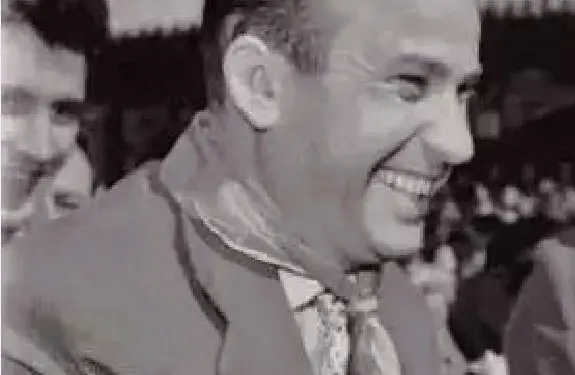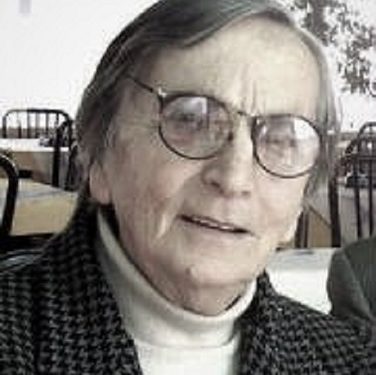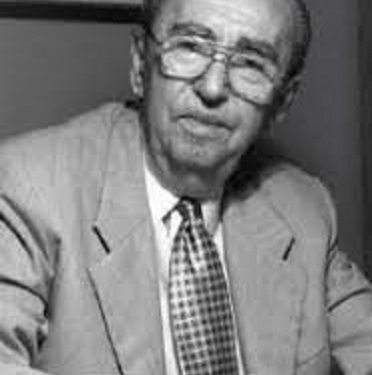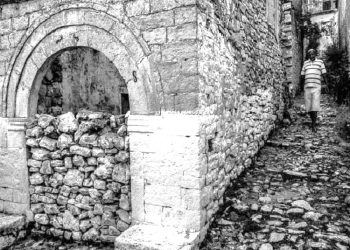From Liri Lubonja
The third part
Memorie.al / Liri Lubonja, is the wife of the former political prisoner, Todi Lubonja, former Director of the Albanian Radio-Television, beaten “for liberalism” by Enver Hoxha in 1973-74 (after the 11th Festival National Song in RTSH), ending up in Burrel prison from 1974 to 1987 and also she is the mother of the well-known writer, publicist and journalist Fatos Lubonja, also a political prisoner, from 1974 to in 1991. Liri Lubonja has skilfully narrated in the book “Far from the people”, the vicissitudes, sufferings and persecution of her and the entire Lubonja family, during the years of exile. A woman who testifies to the suffering of women in the socialist system, for which she herself had fought.
Continues from last issue
FRAGMENTS FROM THE BOOK “FAR AND AMONG PEOPLE”
(Memories of exile 1973-1990)
Deportation
Although most of the inhabitants of the former prison camp were no longer interned, the villagers summed us all up with one name: “deportation”. Some of the freedmen did not like this designation anymore. As I have already said, most lived in the command offices and annexes. The camp was behind them. Only its great iron gate lined the rooms where the families lived. After the closure of the camp, all its premises, together with the offices, were turned into warehouses, but in 1975, when a large broom “cleaned” the capital, the offices were filled with people.
Meli opened the row of rooms, former offices, where the families were lined up. She, along with her older sister, Hajrien, had married Italian engineers after the liberation. They also had a child. Although they were not related to the men, who had been repatriated to Italy, they had been deported. One of the men, before fleeing, had also served prison time, convicted with Maliq’s “saboteurs” group. In order not to leave the sisters alone, their brother, Zeneli, followed, whom everyone called Daja, as did the two grandsons, Boxhi and Fredi! When they were young, he and his younger sister Meli, whom I had met in Lezhë, had been partisans.
They came from a wealthy family (his father had been a high-ranking soldier at the time of Zog, a landowner). Theirs was a whole life of persecution. They said that in the first internment, in the 50s, somewhere in Fieri, they had slept for some time under a bridge. In Fishtë, at the end of the first five years, their internment was lifted without the right to return to Tirana or any other city.
Fredi, the son of the older sister, Hajrie, fell in love with and married a girl from Zadrimo, the daughter of a communist, the civil status officer of the united cooperative. This relationship with the deportation was not accepted by the girl’s family members. It was said that there had been threats with knives against, to quell the quarrels, which approved their departure to Rrilë, the Agricultural Farm sector. Hajria often came to Fishtë to her brother and sister and talked a lot about the benefits and advantages of Rrila. Poor man! When you learn a little, you are easily satisfied.
Meli and Boxhi had the tap under their stairs. Sometimes they knew it as a privilege, sometimes a misfortune. In addition to the two rooms, they also used some of the premises of the former camp, especially the garden in which they grew very good vegetables and chickens.
Xhevrija lived in a large room next to them. They had brought him from the distant Procesti, a border village of Peshkopia, with his 12-13-year-old little son and the eldest son’s daughter-in-law, Rushen, who had 2 little girls. The two older sons, Hasan and Selamiu, had been imprisoned because a friend, who had gone to them from Tirana, had fled to Yugoslavia. According to Xhevrija and the bride, it was a very shocking event.
The boys were asked by the investigator to admit that they had helped that Tirana friend to cross the border. One of them, the youngest, had “tortured” the investigator a lot, because he did not want to accept in any way. This was said by the investigator himself afterwards. Both of them were severely punished in the trial: with 16 and 14 years in prison. The family there in Fishtë lived on a cooperative pension of 110 lek from Xhevrija and the income of the bride, an agricultural worker in the Gathering sector.
In the rooms behind Xhevrija, Enver Paçrami had lived in a more spacious environment. They had removed him from Tirana where he had been a storekeeper, because he was Fadil Paçram’s brother. In Fishte, he and his sons worked in agriculture. Before we went to Fishtë, they had sentenced him to ten years in prison for agitation and propaganda. From what was said, the accusations were that he cursed marmalade, drinking water, and watched Yugoslavia on TV.
Two of the witnesses, former internees, had often watched the Montenegro station on television in his home. Some other internee, under the pressure of fear and the hope of forgiveness, had agreed to testify about the other nonsense. The wife, a very resourceful woman, after many efforts had managed to go with the two sons to Durrës to her people.
In that entrance, they placed Fadili’s family and, behind her, in a single room, Zana and the girls. Behind the canteen kitchen was Neta’s room. This was a 30-35-year-old woman who, as soon as she spoke, you could tell she was a prostitute.
I was surprised by the way he explained the reason why he had been exiled. Unlike some others, who spoke suffocating, as if they were chewing, she told me in a full voice in the dialect of Zadrima a word, which didn’t mean anything to me that I didn’t understand. After hearing it 3 times, another person who was there translated it to me: “Prostitution”. Not only was Neta not angry with him, but on the contrary, she felt relieved that I finally clarified. Shouldn’t I have to deal with another woman who was happy that “thankfully it wasn’t for politics”?!
Neta had been married. He had a 13-14-year-old son, whom he had left with his brother in Korça. Her husband’s work was in the dark. She herself said that she was dead, someone else, who had quarreled with Neta, said that he had separated her. There in Fishtë, he was connected with a Zadrimor driver, father of 4-5 children, who had a wife whom everyone praised. Nika entered Neta without invitation, as in his house.
Some of the ex-internees (even Neta, after the first five years, had the measure of internment removed) told stories about her…!
Some time ago, he received a telegram informing him that his father was ill. Neta used to take leave and go to see him. A telegram had also arrived, informing him that his father had died. But, after some time, he received a second telegram, which again informed him of his father’s death. Those who told these stories, said with conviction that Neta was taken in these cases and taken to the dungeons, to disarm the arrested women.
When we went, Neta did not hide her friendship with some employees of the Interior Department, on the contrary, she tried to make it known. He took care to provide them with good biba and called one of them by the affectionate abbreviation Golka (he was an investigator). In the end, he told Zana, as if in confidence, that Hekurani, (head of the Security at that time) had specifically ordered him to “take care of Liria and Zana”.
Neta worked as a cowherd in the herd of cows of Grumbullimi together with another girl. It was a privileged job not only because it had a good and stable salary, but also because it enjoyed some benefits. The cow herd was created from the cattle that the cooperatives handed over to the state, as an obligation of the meat plan. Its destination was fattening to compete for the Lezha market.
When the cows gave birth, the cows took the milk. At first, someone had wanted to get into their parts, but they were busy with Neta, washing each other with buckets of milk. Since that day they had not spoken. Neta would send a bowl of milk or yogurt to those with whom she was friends, or whom she wanted to connect with. She laughingly told how she acted when she was in the mood for meat: she would set her eye on the best cow, drop it in the alfalfa, and, when she bloated, fell down and began to squirm, she would stick the knife in it.
The damaged cow went to the slaughterhouse in Lezha as a meat plan and Neta, according to the right given, received a piece of meat and all the offal for free. Pieces of debris were scattered across the sector. Even this butcher’s trade, which he had acquired there, added to the feeling of non-acceptance that that woman evoked in me.
In the summer, his son, who attended the first year of the Agricultural School of Korça, came for vacation. One day he approached our fence and called me. He wanted an Italian-Albanian dictionary to learn Italian. All the questions and reservations I had about my mother seemed to be automatically transferred to my son, who in fact had to be called unfortunate with his father dead and his mother exiled so far away.
So, without opening the “gate” made of perches, I told him that the language was not taught with dictionaries, and that I didn’t have one. Then I remembered with regret my gesture devoid of kindness, courtesy and desire to help him. He was also a victim of distrust. Wasn’t this mistrust of people, the instinct of self-defense, destroying and alienating us?
Further on, behind the large Iron Gate leading into the camp, was a separate building. Gjon’s family lived there. She was also interned in 1975. Both, husband and wife had been distinguished workers at the Textile Factory. Roza, a lively woman, tireless at work, on the day she left for internment, she left a picture of herself among the best workers of the city of Tirana, on the board of the Professional Unions emulation.
From what was said, she had been a candidate for “Heroine of Socialist Work”, but the consecutive letters that had gone from Mirdita to the “state” had not left her. The content of these letters seems to be: “How could they live in Tirana, in the capital, when it was known that Gjon’s father had helped the saboteurs”!? Some said that he had been quite a saboteur and not just their helper. The family had its own version of his murder in a gang-up attempt by the pursuit forces in those early post-liberation years.
That is why the mandate of exile came to them. Gjon’s mother, the wife of the “saboteur”, was spared, but she could not live in Tirana at an advanced age, alone, without income, so she followed her son. She was a wise woman, without words, but very strong. She did the housework; cooked for the family and spent all her free time, even in the heat of the day, although she suffered from high blood pressure, in the garden they had near the tap where it produced good and abundant greens. I used to talk to him about the evils of the sun, but he didn’t stop working in the garden except when he got sick for a few days. That’s how he tried to help his son, who had five children.
The two little ones were born in exile. The older girls had graduated with excellent results from the Blinisht Agricultural High School, but no work, except for the hoe, had been found for any of them. The eldest, Kristina, began to semi-illegally sew in the machine not only for the family and the internees, but also for the surrounding villagers. She was in demand as a seamstress, especially by the girls who paid the dowry for marriage. The council threatened him from time to time with confiscation of the car, but they did not take it away.
Bile, the last chairman, a young man, came round to sew a pair of trousers for him. The second, Angjia, worked in the field alongside her, while the third, Leta, a smart girl who studied well, became Ana’s closest friend. They studied in the same class, they were the same age. Ylvia also lived in that house, exiled from Tirana in 1975 with her son, Shpeti, as her daughter, a construction technician, was convicted for agitation and propaganda.
Even when she was released from prison and returned to Tirana, her mother, much less her brother, were not given the right to return. Only when Ylvia retired, she went to her daughter in Tirana, while Shpëtimi, despite making so many efforts, remained a “free citizen” there for about 14 years.
The young couple, Luti and Lida, lived near us. Luti had been a wrestler, even a good one. He said that he was going to an international meeting, when he was interned. The wife was from a family associated with the National Liberation War. The evil seems to have come from one of Luti’s brothers, who were severely sentenced to prison.
All of them, after the first five years of exile, were declared “free citizens” by Dega, but without the right to return to Tirana, or go to any other city. From what they said, “Taras Bulba”, when he was passing by, was worried about telling them not to let his mind lie to him and to leave, because this house they had in Fishta (!) would also be attacked to stay on the streets…! Memorie.al















